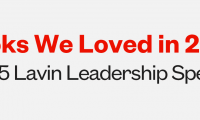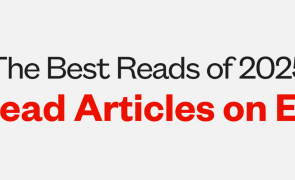Common wisdom would suggest that offering advice to those who are struggling is helpful to them. But findings from the University of Pennsylvania suggest the opposite is true. In fact, it is the actually person dispensing the advice who is benefiting most. Lauren Eskreis-Winkler reveals the surprising insights from her new study.
Wharton post-doctoral researcher Lauren Eskreis-Winkler led her team in conducting an intervention with 2,000 high school students. The study—the first major project from Penn’s Behavior Change for Good initiative—was published with co-authors and fellow Lavin speakers Katherine Milkman and Angela Duckworth. The work was executed by Duckworth’s non-profit organization Character Lab.
Eskreis-Winkler revealed that, in her previous work with Duckworth, she was impressed by the motivational strategies kids were already using. “A million times a day, people problem-solve big and small ways to motivate themselves and, in some cases, do so very effectively,” she said. “The current intervention is that insight in a bottle. We figured, instead of telling kids about the latest science of motivation, what if we let them motivate themselves? As opposed to having kids receive advice, the intervention asks kids to give it.”
In the experiment, half of the students were designated “advice-givers,” and were asked to provide motivational guidance to other half—the control group—via an online survey. “The activity was designed […] to make them feel like bona fide advisors, people who have useful information to share,” explained Eskreis-Winkler.
At the end of the academic quarter, the advice-giving group earned higher grades than the control group, but remarkably, all 2,000 participating students appeared to benefit from the experiment. When asked how the research could be applied to schools, Eskreis-Winkler replied, “I hope this experiment catalyzes a paradigm shift in the way teachers, coaches, supervisors, and parents motivate others. If somebody we know is struggling, our intuition is to give that person help, to position him or her as a recipient. But our work shows there is benefit in doing the exact opposite. Our results point to the underappreciated, underutilized motivational power of giving.”
You can read the full interview here.
To book Lauren Eskreis-Winkler, or another Education Speaker, contact The Lavin Agency today.















